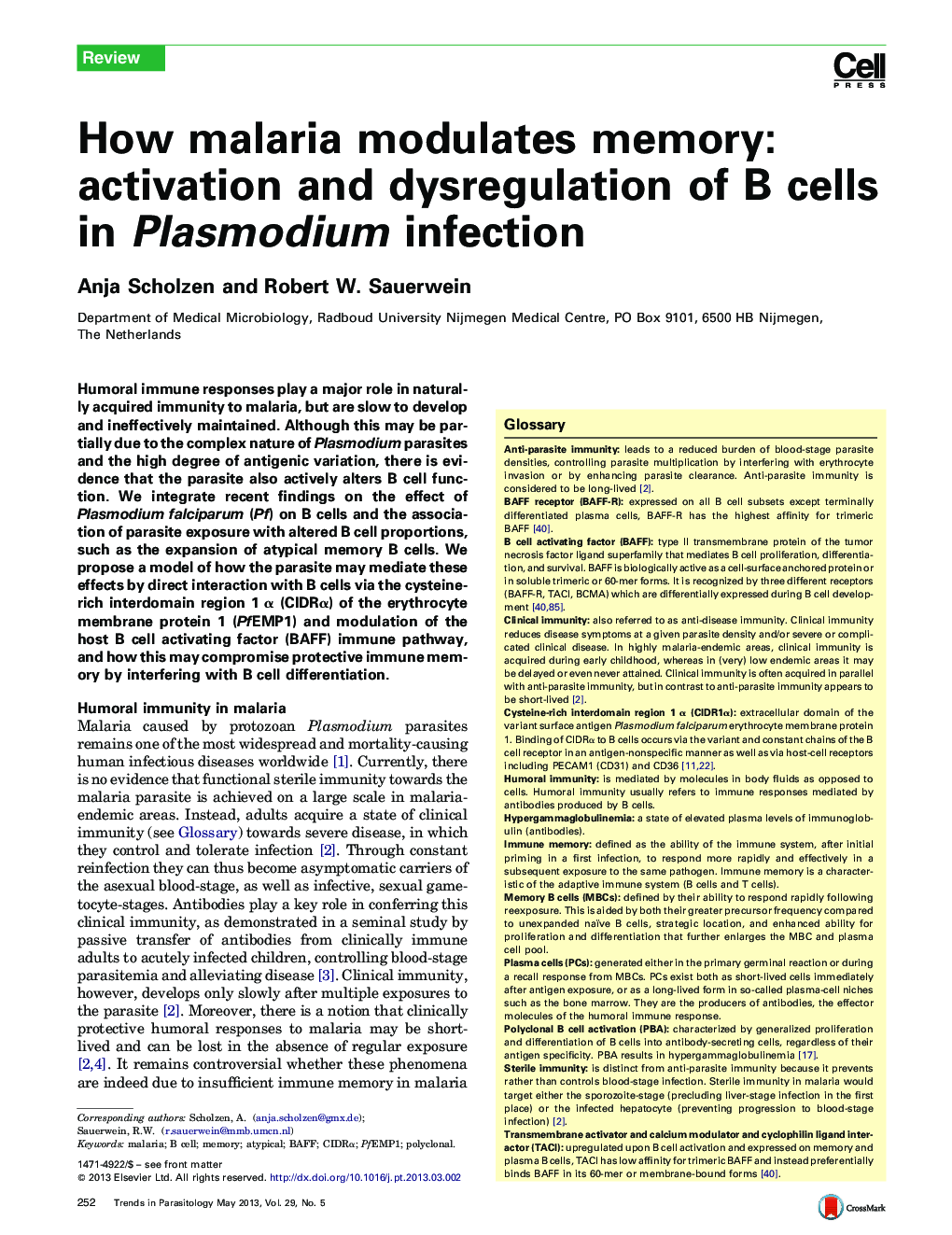| Article ID | Journal | Published Year | Pages | File Type |
|---|---|---|---|---|
| 3423210 | Trends in Parasitology | 2013 | 11 Pages |
Humoral immune responses play a major role in naturally acquired immunity to malaria, but are slow to develop and ineffectively maintained. Although this may be partially due to the complex nature of Plasmodium parasites and the high degree of antigenic variation, there is evidence that the parasite also actively alters B cell function. We integrate recent findings on the effect of Plasmodium falciparum (Pf) on B cells and the association of parasite exposure with altered B cell proportions, such as the expansion of atypical memory B cells. We propose a model of how the parasite may mediate these effects by direct interaction with B cells via the cysteine-rich interdomain region 1 α (CIDRα) of the erythrocyte membrane protein 1 (PfEMP1) and modulation of the host B cell activating factor (BAFF) immune pathway, and how this may compromise protective immune memory by interfering with B cell differentiation.
